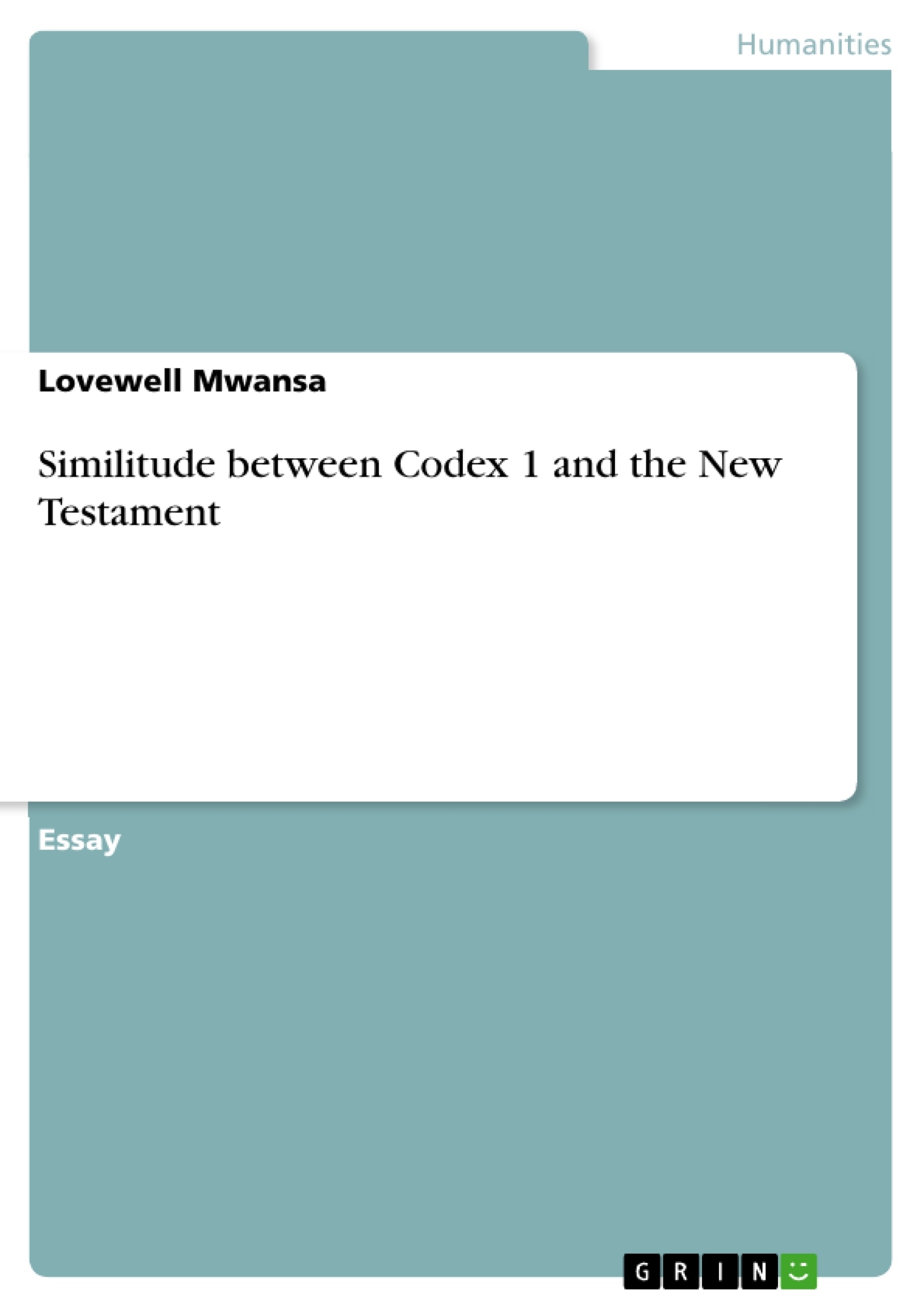According to the World History Encyclopedia, Gnosticism is the belief that human beings contain a piece of God, the highest good or a divine spark, within themselves, which has fallen from the immaterial world into the bodies of humans. All physical matter is subject to decay, rotting, and death. Those bodies and the material world, created by an inferior being, are therefore evil. Trapped in the material world, but ignorant of its status, the pieces of God require knowledge to inform them of their true status. That knowledge must come from outside the material world, and the agent who brings it is the savior or redeemer.
Inhaltsverzeichnis (Table of Contents)
- Investigation of Similitude Between Codex 1 and the New Testament
- The Secret Book of James
- The Prayer of the Apostle Paul
Zielsetzung und Themenschwerpunkte (Objectives and Key Themes)
This research paper aims to investigate the similarities and differences between Codex 1 and the New Testament. It analyzes the content and context of Codex 1, particularly focusing on the "Secret Book of James" and "The Prayer of the Apostle Paul," to determine its relationship to the canonical New Testament.
- Gnosticism and its core beliefs
- The influence of Gnostic thought on early Christian writings
- The relationship between Codex 1 and the New Testament
- The authenticity and historical context of the "Secret Book of James"
- The origins and characteristics of "The Prayer of the Apostle Paul"
Zusammenfassung der Kapitel (Chapter Summaries)
- The first chapter provides an introduction to Gnosticism, outlining its core tenets and its impact on early Christian thought. It also establishes the context for the investigation into Codex 1, emphasizing its importance within the broader framework of Gnostic literature.
- The second chapter focuses on the "Secret Book of James," examining its content, authorship, and historical significance. It explores the key themes presented in the text, including the nature of salvation, the role of secret knowledge, and the conflict between Gnostic and orthodox Christianity.
- The third chapter analyzes "The Prayer of the Apostle Paul," tracing its origins, its stylistic and thematic connections to other Gnostic and non-Gnostic writings, and its potential Valentinian influences.
Schlüsselwörter (Keywords)
Key terms and concepts in this research paper include Gnosticism, Codex 1, "Secret Book of James," "Prayer of the Apostle Paul," New Testament, Valentinianism, salvation, secret knowledge, authenticity, historical context, and early Christian literature.
Frequently Asked Questions
What are the core beliefs of Gnosticism?
Gnosticism is the belief that humans contain a 'divine spark' or piece of God trapped in an evil material world. Salvation is achieved through secret knowledge (Gnosis) brought by a redeemer.
What is Codex 1 and why is it important?
Codex 1 is a collection of Gnostic writings. It is significant for understanding the diversity of early Christian thought and the influence of Gnostic ideas outside the canonical New Testament.
What is the 'Secret Book of James'?
It is a Gnostic text found in Codex 1 that claims to offer secret revelations from Jesus. It explores themes of salvation and the conflict between Gnostic and orthodox views.
Does the 'Prayer of the Apostle Paul' belong to the New Testament?
No, it is a Gnostic work found in Codex 1, often associated with Valentinian influences, and differs from the traditional Pauline epistles found in the New Testament.
How do Gnostic texts view the material world?
Gnostics view the physical world and bodies as evil or inferior, created by a lesser being, and subject to decay and death, unlike the immaterial world of the divine.
- Citation du texte
- Lovewell Mwansa (Auteur), 2022, Similitude between Codex 1 and the New Testament, Munich, GRIN Verlag, https://www.grin.com/document/1358816



